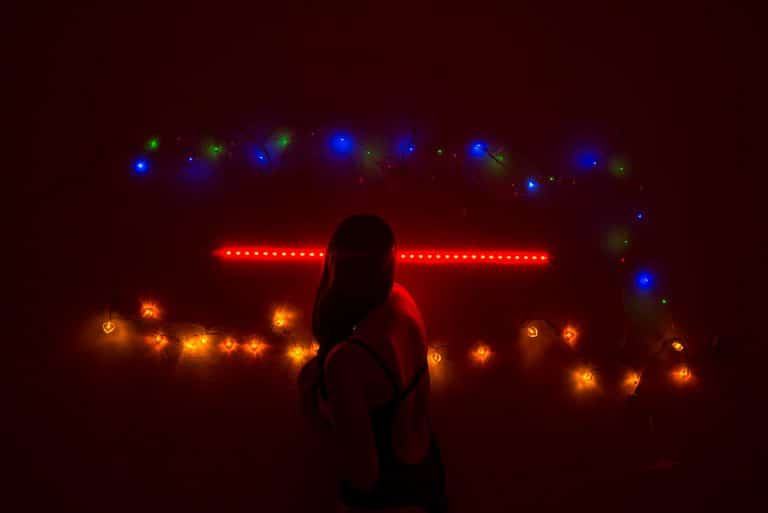What will happen to nightclubs in the UK?
The music industry is arguably the most collaborative and welcoming of them all, and it could also be said that it is still, and always has been, the unflinching glue that has brought contrasting cultures and communities together for centuries. Nightlife is part of what London, and the UK, is about. When music is being played, the space that it reaches belongs to everyone listening. We are now, more than ever, at risk of losing this community driven space. How exactly can we prevent that from happening?
Nightlife—and therefore nightclubs, which are the essence of it—brought us limitless events to attend, a release from intense working hours, an energy to mingle and meet new people, which all in all allowed us to let our guards down as the night set in. However, the past year has forced this whole world into real darkness, taking the £5.2 billion it contributed to the UK’s economy with it.
David Conde, head of marketing and communications at FOLD told Hypebeast that “If there’s one thing that we’ve learned from closures, it’s that once these venues go, they don’t come back.” Meanwhile, The Lion & Lamb is still fighting for survival through a Crowdfunder campaign and E1 had to go from introducing Site 5, the nightclub’s own outdoor space, to a series of distanced seated events at their venue.
The Cause, a grassroots arts and events space supporting dance culture, London nightlife, independent businesses and positive mental health has also been experimenting with open air spaces during the last month of the summer. But still, London’s vibrant nightlife has been more than heavily impacted.
The sector has been rallying against the government’s decision to keep nightclubs closed even after pubs, bars, restaurants, hotels, theme parks, galleries and hairdressers reopened in July—although only functioning by day until the COVID-19 induced 10 p.m. curfew clocks in. But even when that time comes, we see tipsy pub-goers being emptied out on to the eventless streets, with two options a) to go home to bed or b) to go home and continue.
What makes an event, ticketed or not, that starts at night so much more different than a seat-shuffling restaurant or an up close and personal hairdresser booking, if the necessary precautions are met? Does the virus live more ferociously by night? Sounds a little too boogeyman-esque for me.
What’s next for nightlife events?
The global pandemic has in some ways acted as a reset button for many venues, giving them time to rethink their marketing strategies and plan their future development in general. However, the moment to put these new plans into action never came. According to The Guardian, night time venues have warned they face imminent “financial armageddon,” forcing more than 750,000 jobs to a cliff edge—unless the government provides them with support or greater certainty about when they can reopen.
Proposals written by the Institute of Occupational Medicine (IOM) for the nightclub industry include ID scans for clubbers to assist with test and trace, and thermal monitoring to measure their temperature. These same proposals met the standards of other industries such as hospitality but have since been denied. A report commissioned by nightclubs pledged their commitment towards more intense and frequent cleaning regimes as well as compulsory mask-wearing. These venues where night time events take place are knowingly much larger than those of restaurants or bars, are already equipped with powerful mechanical ventilation systems, which means they can easily allow for facilitated social distancing.
There has been a growing number of illegal raves springing up over the course of the pandemic, which have undeniably put many at risk of contaminating crowds but shouldn’t this be seen more as an incentive to open up alternative events where precautionary measures can actually be put in place? What about the musicians that are living off London’s nightlife—should we not put more focus towards the up-and-coming local musicians who are at greatest risk of losing their dreams and ambitions to the pandemic entirely?
The future of our nightclubs could be at a crossroads, one path leading to the reopening of event spaces where live music can legally take place with safety measures in place such as guests following similar rules to what they would face in any other hospitality complex, which we will have to respect. The other leading to the huge loss of common ground and cultural mixes that these events brought us in the first place.
How can we bring clubs back?
The Eat Out To Help Out scheme has helped many venues get back on their feet, but as nighttime economy adviser Sacha Lord told NME “my fear is for those in the wider night-time economy who haven’t benefited. Not only the wet-led bars and pubs who weren’t included in the offer, but the night clubs, live music venues and theatres which are still closed.”
How can we help our much loved and greatly missed night scenes? There is a petition called Let Us Dance – Support nightclubs, dance music events and festivals, that requires 10,000 signatures for the government to take a second look at what rules are in place and how they can be amended to save nightlife venues from closing their doors permanently.
We can join groups that are showing their support via social media such as Help Musicians or Save Our Scene UK that contribute towards it too, where you have not only the opportunity to join a community of music lovers but can donate, and support musicians in other ways.
If you want to ever attend the special evenings that sofar sounds organised again or see local theatre shows and comedy gigs, we cannot give up now. Legal raves are understandably over for the foreseeable future, but intimate gigs that meet safety requirements do not have to be.





